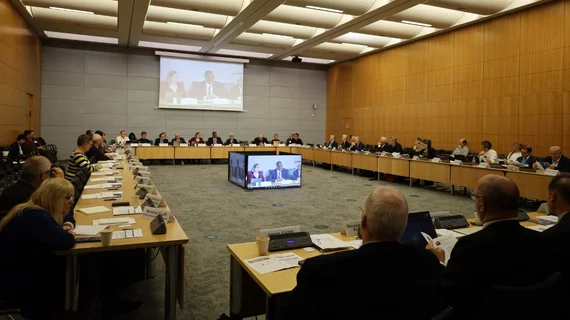Medical radioisotope supply chain faces future crisis, Nuclear Energy Agency warns
The demand for medical isotopes is expected to only increase over the next decade, causing the Nuclear Energy Agency (NEA) to sound the alarm about “aging nuclear infrastructure” tasked with supplying critical radioisotopes. But, there's one isotope the NEA is especially concerned about.
An outdated supply chain “threatens the security and availability” of molybdenum-99, the NEA said in a statement. To address the concern, the NEA held a workshop in October, attended by more than 200 international experts.
“I was at the Nuclear Regulatory Commission at the time and visited hospitals and talked to doctors who told me that the situation was outrageous; there were going to be people who will have surgeries that they didn’t need to have, or get treatments using isotopes that gave them much higher doses. These outcomes were very frustrating to medical professionals,” William Magwood, IV, the NEA director-general said during the workshop.
In its statement, the NEA praised growing public and private investment to address the increased demand for radioisotopes. However, while progress has been made on strengthening the supply chain, the reliance on government policy, coupled with a lack of young people entering the field, threatens future stability, Magwood said.
“We need more young people coming into this business. This is not an area that you hear much about in the public domain; so when you talk to young people who are interested in STEM careers, going into a field in medical isotopes never comes up because they don’t know that it’s there,” he added.
Magwood said his fears were based on a previous radioisotope supply crunch that happened in 2009. He reminded those in attendance at the workshop that their work is “saving lives and making a difference for people all over the world,” which is why it’s important to address emerging concerns before they become a global crisis.
The workshop focused primarily on the availability of molybdenum-99, and proposals were discussed “with an emphasis on technological advancements, policy frameworks and international cooperation,” the NEA said, adding in its statement that the future of medical radioisotopes will ultimately depend on the ability of leaders all across the globe to come together.

